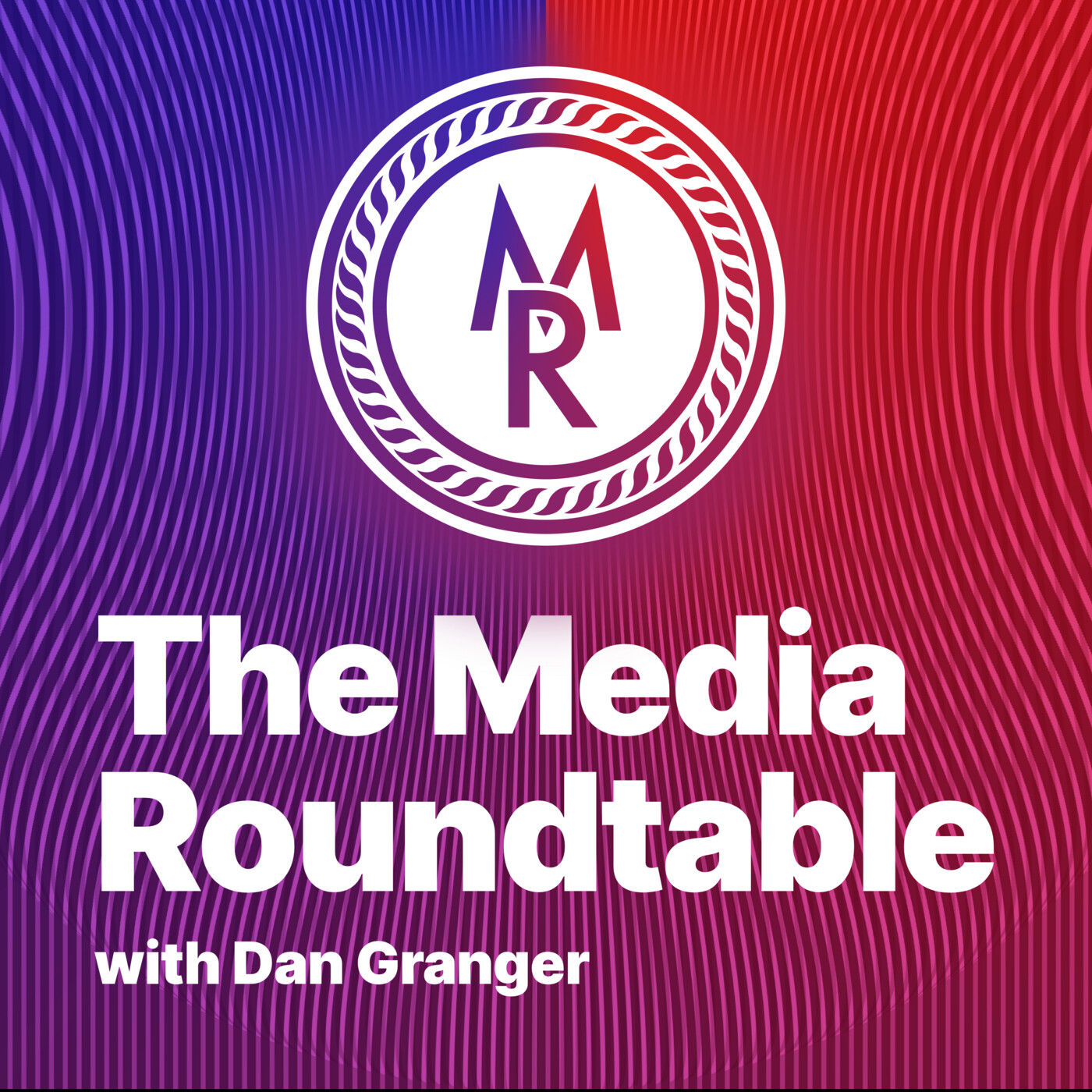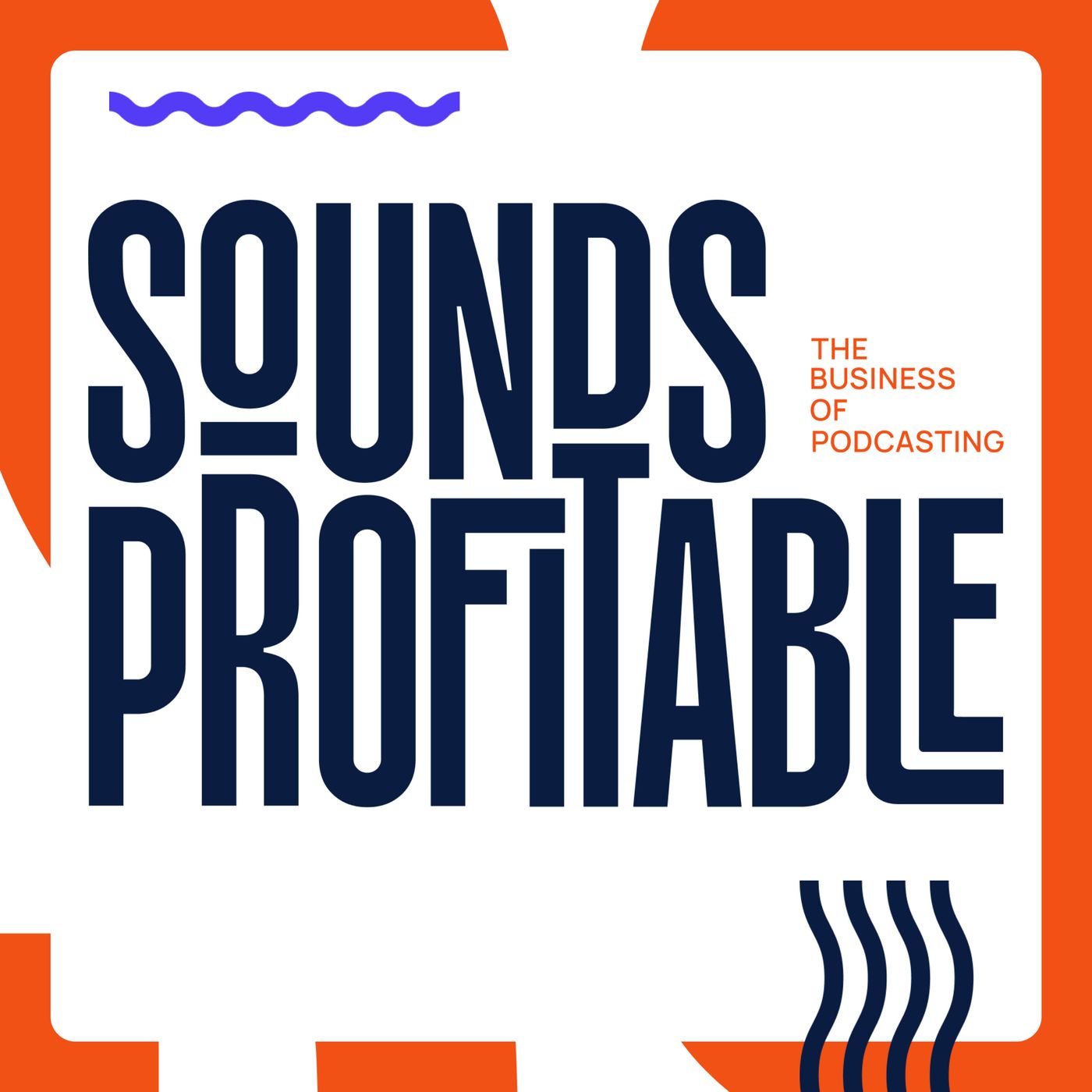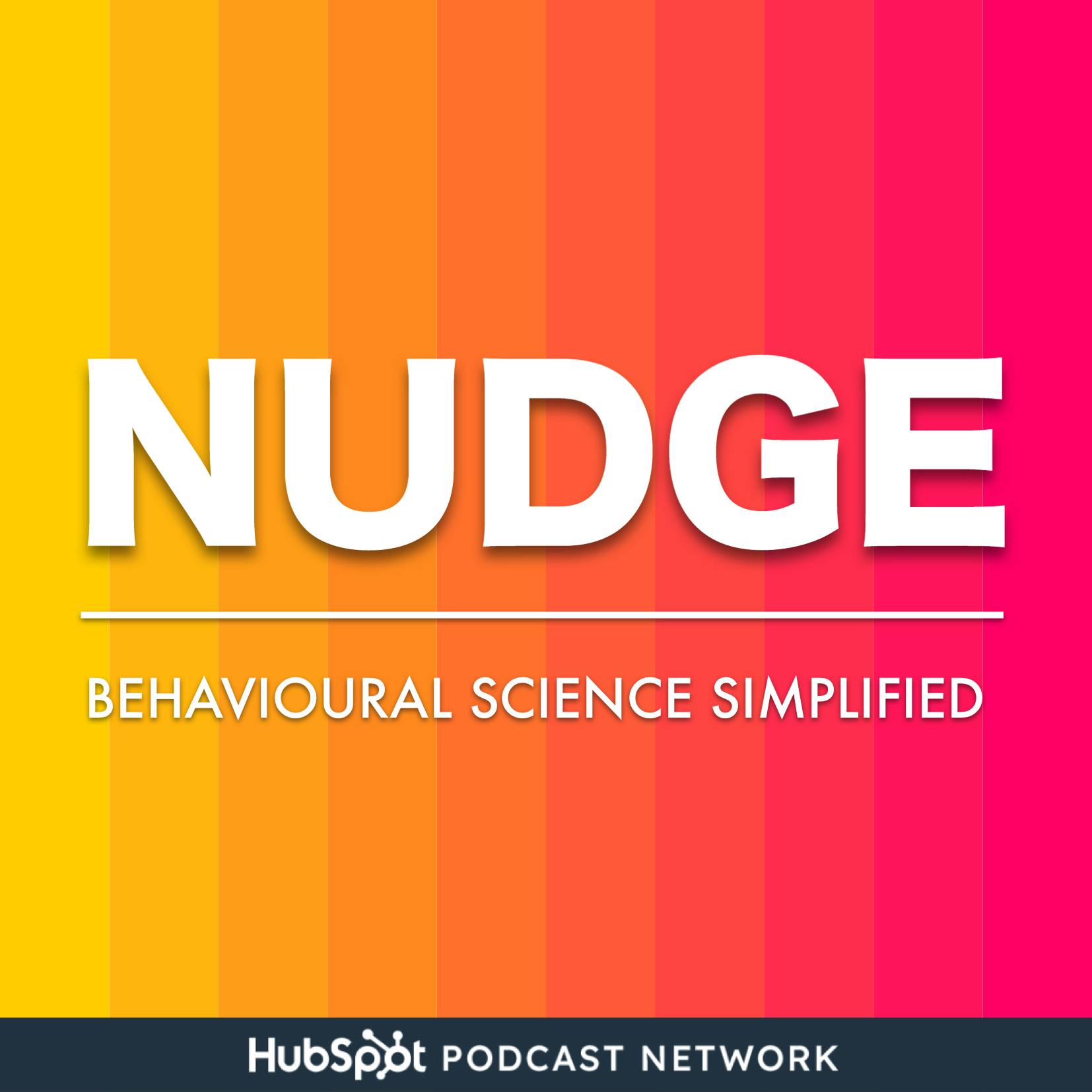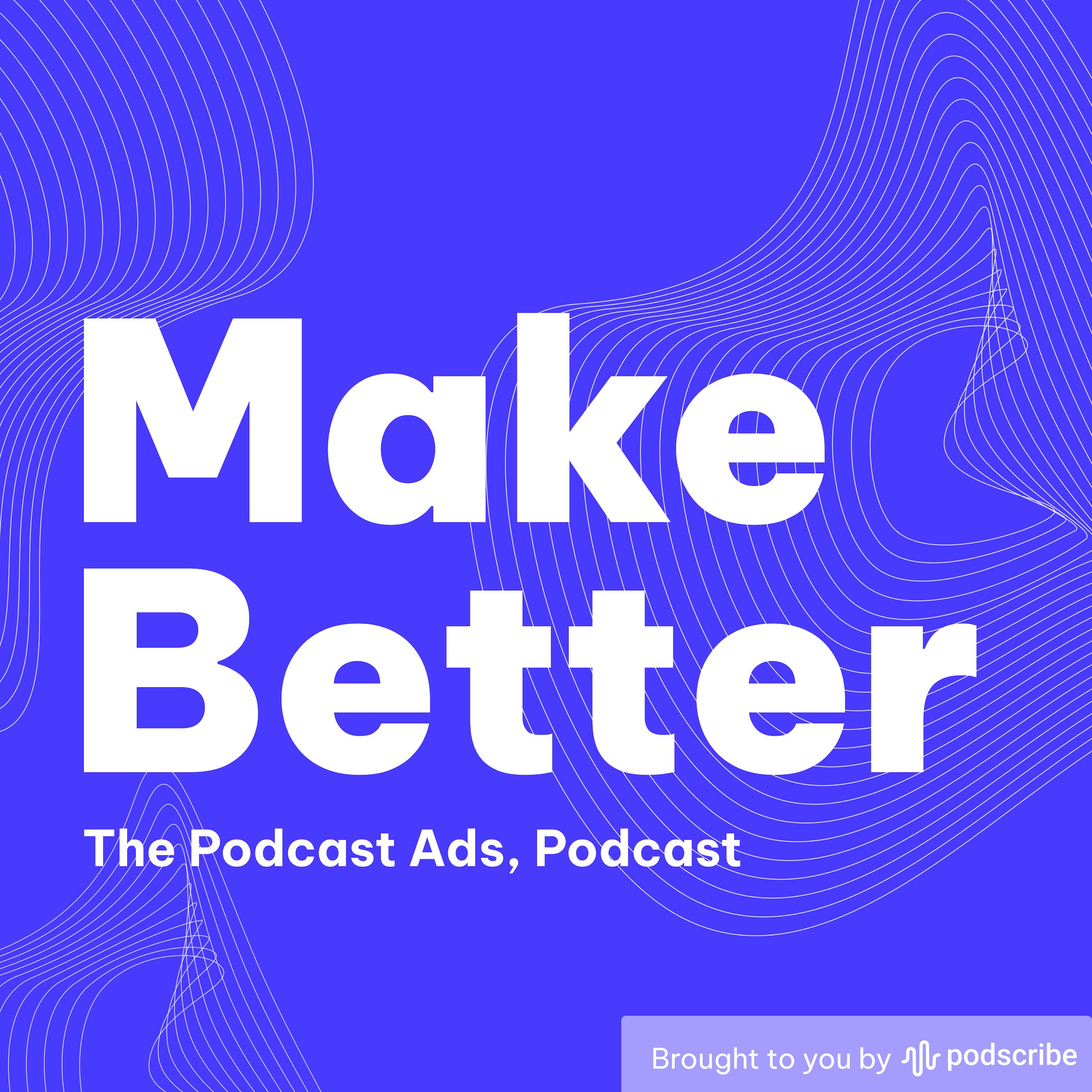
Ad Infinitum
Ad Infinitum is the award-winning podcast solely focused on audio ads - the creatives who make them and/or the latest thinking that informs them, how the space is evolving, and a round-up of recent audio ads and analysis by Stew Redwine and each episode's guest.
Ad Infinitum is Presented by Oxford Road and Produced by Caitlyn Spring & Ezra Fox, MFA, written & hosted by Stew Redwine, and sound designed by John Mattaliano, with audio production by Zach Hahn.
Ad Infinitum
Sonic Truths
Ad Infinitum is the only podcast solely focused on audio ads - the creatives who make them and/or the latest thinking that informs them how the space is evolving - AND, usually, a round-up of recent audio ads and analysis by host Stew Redwine and each episode's guest - BUT, this episode is a little different.
This is Season 2, Episode 9 of Ad Infinitum, and this episode's title is "Sonic Truths." It discusses the evolution of McDonald's sonic branding and its current and future audio recipes with guest JJ Healan, Vice President of U.S. Marketing, Brand Content, and Culture at McDonald's.
JJ is an expert on brand strategy, content creation, innovative marketing techniques, and a lot of fun! Enjoy listening to what has helped define McDonald's sound over the years: a focus on fan truths, striking the balance of freedom and constraints, and a commitment to collaboration by "sharing the pen."
Ad Infinitum is Presented by Oxford Road and Produced by Caitlyn Spring & Ezra Fox, MFA, written & hosted by Stew Redwine, and sound designed by John Mattaliano, with audio production by Zach Hahn.
Stew Redwine (00:00):
Hit it. Thank you for listening to Add Infinitum. A quick update on the last episode's competition. Before we begin this episode, we played a piece of audio that had several Sonic IDs in it and asked the listeners to guess how many were there and I'm happy to announce our winner or winners. We had one runner up that was close, Dave Chachi Dennis Guest 17, which is close to correct, definitely runner up will be getting a signed copy of the CAO event Audio lytics guide Laminated signed by Stu Redwine and the winner is none other than Antonio Coronado from Oxford Road who we affectionately refer to. I refer to as Antonio Lytics. Thanks to his involvement in audio lytics all throughout the years in helping with the grading and train. And of course he has a very keen ear. He guessed correctly at 22 Sonic IDs in the audio if you wanna hear that, it's in the last episode.
(01:05):
Audio Effects with Craig Kitchen. And now please enjoy season two, episode eight of Add Infinitum. Hit it ad infinitum is the only podcast solely focused on audio ads, advertise the creatives who make them and or the latest thinking that informs them how the space is evolving. And normally a roundup of recent audio ads and analysis by yours truly ad campaign Stu Red Wine in each episode's guest. But this episode is a little different and I'm excited for it 'cause we're gonna be talking about one of the most recognizable sonic brands in the world. This is season two, episode eight of ad infinitum and this episode's title is Sonic Truths discussing the evolution of McDonald's sonic branding as well as their current and future recipes for audio. And that's why our guest is JJ Helen, vice president of US Marketing brand Content and culture at McDonald's. JJ is an expert on brand strategy, content creation, and innovative marketing techniques. Welcome to Add Infinitum. jj, thank you very much for coming on the show.
JJ Healen (02:10):
Thank you Sue. So great to be here with you.
Stew Redwine (02:12):
So great to have you here. I'm really excited for this one. So today we're diving into a topic that's not just close to my heart but also crucial for understanding the power of sonic branding McDonald's 20 plus year journey with I'm loving it, I'm loving it. In 2003, McDonald's launched what has become one of the most recognizable jingles in advertising history. Most of us can easily identify McDonald's from just a simple BA without any visual cues. And when only 16% of advertising is remembered and correctly attributed, leveraging distinct and recognizable audio is critical. Sonic brand cues deliver seven times better brand recall than visual cues. And in radio centers listen up their recent study as a result of research featuring consumer reactions to audio ads measured by system one's new test, your ad audio tool and radio advertising effectiveness data collected by radio center over the past 10 years In total, the analysis is based on 131 radio ads featuring effectiveness and emotional data collected from over 50,000 radio listeners and non listeners.
(03:18):
And the key findings include audio ads that make listeners feel more positive, drive consumer behavior change and deliver longer lasting brand effects. Radio is as likely to cause long lasting effects through an emotional response as TV advertising. And well-branded or fluent radio advertising creates bigger trust effects and audio ads with more right brain features are more likely to cause longer lasting brand effects, all things that McDonald's does well. Right, but how did McDonald's achieve this level of sonic success? It all started with a global pitch involving 14 agencies across several countries. The winning concept I'm loving, it was born out of a late night studio session in Germany and since then it's been adapted countless times, featured in collaborations with major artists and has become an integral part of pop culture. The key to its longevity, consistency with flexibility, McDonald's has maintained the core elements of the jingle while allowing for fresh interpretations that keep it relevant.
(04:12):
This approach aligns with best practices in sonic branding, which emphasize the importance of a recognizable audio signature that can evolve with the times. We're also going to explore with JJ how McDonald's customizes its sonic branding for different contexts and audiences, much like their create Your Taste Burger program and all of that is built on their core fan truth brand strategy. Whether you're a seasoned audio officer or just starting to explore the world of audio branding, this episode is packed with insights on how to create and maintain a powerful sonic identity. And much like Luke Skywalker blowing up the death start, it has much more to do with letting go than trying to control everything closely yourself. Alright, so let's get into it. JJ, are you ready for some questions about McDonald's Sonic brand?
JJ Healen (05:02):
I am ready. Let's do it.
Stew Redwine (05:04):
Okay, so before we get started on that, can you tell us about your journey in marketing and what led you to your current role at McDonald's? What's the lore of jj?
JJ Healen (05:13):
Sure, Sue. What's interesting is I've had a lot of reflection even back from what I majored in in college at Emory University, which I was an art history major and I appreciate that experience so much because as I evaluate creativity every single day, understanding what goes into the crafting of a piece of art, understanding what was the thinking behind the artist and then how to think about themes overall that training back in my major really has paid off exponentially and it truly has been a gift to actually add to what I do every day. I grew up in advertising agencies for over a decade and I'm so honored because I've been able to work on two of the most iconic brands, Coca-Cola. I was there for 15 years and now at McDonald's four and a half years and at Coke I was able to work on many, many brands on the global side as well as the US side.
(06:13):
And a lot of my tenure there was working on brand Coca-Cola and the trademark and understanding how creativity comes to life, understanding what makes agencies tick and how you get great work out of your partners. I do believe even my past experience working on the advertising agency side led to that. And so as I celebrate my almost five years at McDonald's, it has been quite a journey and we've been on a mission to make McDonald's a cultural icon, put the brand back in culture again. And the last several years in partnership with Widen Kennedy, New York and all of our agency partners has truly been a journey as we've gotten our brand swagger back, we've had a great ride and it's been a great journey so far.
Stew Redwine (07:02):
That is awesome to hear. And I love hearing your own personal history about art history where you're talking about the themes, like it reminds me of there's this documentary, I think it's called The Creative Brief and it's got Joe Pitcock the commercial director in it and he has kind of been known for being a difficult guy or being a RAs ball or whatever, but he says like the most awesome like open-minded thing about like even whatever script that he would get for a campaign that he's going to work on, he believed that there was a good idea at the heart of it. Like there was like a theme or something down deep inside of it. So just hearing you say that like sometimes I feel like the advertising world can get so cynical, you strike me as someone who's been able to maintain a positive attitude and like look for that in the creative that you're working on.
JJ Healen (07:48):
Yeah, it's really important as we look at creative ideas and what I do with my team, I consider my team a group of crafters and it is our responsibility when ideas are shared to find those kernels or those gems of something that we can continue to build. I truly believe when work is being presented to you, it's about building and there's something that we talk a lot about with my team and with our partners and it's called The Power of Yes. And it's such a small word and it's a very powerful word and for a lot of people it's a really hard word to say but that's where trust and encouragement and actually driving a creative agenda is so important and saying yes to ideas, especially when they give you a little bit of a tummy rumble is also a good thing.
Stew Redwine (08:38):
I think you're exactly right Scott, me thinking like the Winston Churchill quote, he talks about how the oldest words are the best words and of those the shortest are the best of all. And I think of the words yes and no is what always comes to mind when I think of that. And I kind of think no is a more powerful word than in the sense like that'll shut you down so fast, right? Yes. Is incredibly powerful. It's almost like no's the deadly weapon and it does just so it kills creativity so fast
JJ Healen (09:06):
For sure. That's so we talk a lot about the power of yes and being okay when things are a little scary in a good way. That's how we've actually been able to create some of the amazing ideas and campaigns and platforms for McDonald's over the last four and a half years.
Stew Redwine (09:22):
Yeah, and that's what I wanna talk about. So how do you approach your audio advertising? Like I know McDonald's is much more obviously, but we're talking about audio advertising on ad infant items. So how does McDonald's approach audio advertising across different platforms like radio, podcast, digital, audio and visual channels where audio is present?
JJ Healen (09:40):
So at McDonald's we have something called our fan truth strategy. It actually started out as our creative strategy. It is now become our brand strategy and it is the underpin for everything that we do. And so thinking about audio advertising and advertising in general, it starts with these moments, memories, rituals, behaviors that our fans have and that's how we're able to create the campaigns and ideas that come to life in audio. And it's something that truly has unlocked even as we think about partnering with different podcasters 'cause they're able to tell their own fan truth story about the brand. And so knowing that our fans are truly the driving force behind our brand, we've been able to share the pin with them time and time again. And so there's something about the audio assets that we have that we bring to life in our audio advertising starting with the line itself.
(10:43):
I'm loving it and what a powerful line that is. And if you think about fan truths, this line was created 20 years ago, it's the longest standing tagline that McDonald's has ever had. And the fan truth strategy is such a great articulation and now we've been able to reimagine, I'm loving it because if you think about the I, the I is the fan, it's something really personal. It can be anything you want it to be from your love of like picking up that cheese from the bottom of your Egg McMuffin wrapper to stealing a fry from your friend to going and having your birthday at McDonald's. Oh and maybe drinking a grimace shake. So that memory muscle that we have created within our audio advertising, through our different audio assets, BAA Bababa is another example of that. So thinking through bringing Baa Baba to life through the lens of our fans, even when we were able to do partnerships with different brand fans such as Travis Scott, j Balvin, et cetera, we were able to have them do their interpretation of that. So you've got, I'm loving it. You've got, we also have consistent voices in all of our audio advertising. So Brian Cox.
Stew Redwine (11:58):
Oh yeah,
JJ Healen (11:58):
Yeah. Logan Roy from Succession, he is our brand voice, especially as it relates to talking about our food. And what's been interesting about using Brian and his just amazing acting ability and how he's able to improv, he truly is the voice of the fan. So he can talk about onions, he can talk about cheese, he's almost having this inner monologue as a fan as he's talking about all the different ideas or campaigns that we have. And he truly has been instrumental in crafting the McDonald's brand voice, which you hear throughout all of our audio advertising.
Stew Redwine (12:37):
What's it like in the booth? Like is he bringing that wrapped in a, you know, blanket of blah blah blah, like whatever. I mean I'm not even gonna try to do it. Well done. Well thank you. I mean, what can I say? But he, you know, crispy bacon and just the way that he like does it, is he coming up with that and just bringing that?
JJ Healen (12:55):
Yeah.
Stew Redwine (12:56):
Because it does sound so much like this inner monologue.
JJ Healen (12:58):
Totally. And you think about Brian's training Shakespearean actor, like he has such amazing range so he can be serious and powerful. But then he brings levity and humor and we talk a lot about floss and it's kind of a funny word, like how our food is portrayed visually, but even thinking about the audio. So Brian, as he is singing, like he has his own kind of floss, some articulation of that which we love and that truly has been our audio signature. That has been one of the constants that we've had when we do our work with him. And Brian is great when he improvs so we'll present scripts to him and he'll deliver the script as we need him to. But the takes that have been some of the most memorable or the most sticky are when we let him just riff and bring his own interpretation to it. And that's where the range and the different ways in of how his voice can bring these powerful words to life. It truly has been something that we have loved and it's been some of our most favorite work.
Stew Redwine (14:04):
I love that. I'm loving it,
JJ Healen (14:06):
I'm loving
Stew Redwine (14:07):
It. So what I love about that, and this is related to some of what you and I were talking about before we started recording and I want to get into now, and it's so counterintuitive and I think on the face of it, counterintuitive for a brand with so much weight. Like I remember looking at the world's largest employers and it's like the Chinese army, the United States Army, Walmart and McDonald's. And you're telling me from a creative standpoint and like, okay, so on a micro scale we zoom in, oh when this actor happens to be Brian Cox for this advertiser happens to be McDonald's improvs, when we take the reins off we get our best stuff. And you're saying that like that's not like that's intentional in audio. The way you create emotional connections with customers in audio is that you have strategically, intentionally taken the reins off of controlling your audio.
JJ Healen (14:53):
So Sue, we talk a lot about sharing the pen and that has been an important unlock for you think about big brands like you know we're very, being consistent with your brand identity, your audio assets as we've talked about, there is rhyme and reason for that. But what we have found is that when we share the pin with our fans, we share the pin with our partners such as Brian Cox, such as Travis Scott, Jay Balvin, Cardi Bian, offset, BTS. It is amazing to see the unlock of that not only for themselves but then how our fans and their fans then make the brand their own. And for all marketers is, some of the advice I always give is it's amazing to see the power of when your fans make your brand their own and it becomes sticky, it becomes personal, it becomes memorable. And that's what we have had success and we like loosen the reins and we share the pen.
Stew Redwine (15:53):
It's wild. I mean it is so cool. And I'm curious about this that you said it started out the fan truth started out as a creative strategy and became a brand strategy. I'm curious about that development because it reminds me of, I just found out recently like hey I'm the last to know the Home Depot anthem that we all know now. The Home Depot beat was a single campaign that was like a single campaign that then they saw it had life and it evolved. And I want to contextualize just a bit more because I'm respecting who I'm talking to here is that it's like we can get so in our head as creatives or even as a business that's trying to solve a creative problem and be thinking of the planning and the strategy and the like, oh now we're gonna do this big grandiose thing, we're gonna come up with our new brand strategy for McDonald's. Like that seems like, oh boy, okay well let's roll up our sleeves for the next 24 to 36 months or whatever. As opposed to, it's something that evolved out of a smaller, like you know, you took a bite out of it, you didn't do the whole thing at once. Like what was that process like?
JJ Healen (16:54):
Yeah, so what's been great about the fan truth strategy is it started out as the creative strategy as we've talked about. But what we have found is the power of that. They are moments, memories, rituals and behaviors that our fans have and they're infinite. We actually have a book, it's called the Book of Fan Truth. And what we do is we learn about them every day. New fan truths are created every day. You're gonna have your own fan truth about the brand, but new ones are actually created, which is amazing. And we uncovered these when we went on a road trip and we don't do focus groups anymore where you're like behind the glass eating m and ms, looking at people, evaluating ideas and talking about your brand. We actually go out and talk to our fans, we talk to them in McDonald's, which makes sense.
(17:40):
But what's fascinating in the power of this brand is you can go to Walmart and you can actually talk to a mom and her kids, they're out and about and they have memories of McDonald's. We actually went out to bars or other restaurants or on Sundays you can go to church and talk about McDonald's. And so this started to fuel the development of fan truths and it actually is what has become, as I mentioned, the starting point for every single thing that we do. So it's bigger than a creative strategy actually is the brand strategy. It actually you're able to make platform ideas from a single fan truth. The famous orders platform came from the fan truth, which is no matter how big or famous you are, everyone has a McDonald's order, how may I help you? And thinking about that as a platform idea, it was inspire a one fan truth. You think about what happened with the adult Happy Meal, which started off with Cactus Plant, flea market. There was one day you woke up and like you were too old to have a happy meal and are you too old? I don't think you're ever too old to have a happy meal. And so we were able to unlock childlike joy with the adult Happy Meal. And those are memories and moments that we've been able to create
Stew Redwine (18:50):
And turning that corner from. So when Fan Truth started out as a creative strategy, you had a different brand strategy at that time.
JJ Healen (18:57):
I mean I think it all was just merging together, it showed the importance of truth and it then just has evolved to become everything we think about the brand. You even think about what happens with fan truths at the restaurant every day with our crew. So it actually just evolved to become what this is overall. And it's something we go back to, as I mentioned for the beginning of every creative idea. And what I really love is that we no longer ask when we have ideas presented, will it work? We ask if it's true. 'cause if we know it's true, we know we're onto something
Stew Redwine (19:34):
That's so good. I was just on a text thread about something else going on here at the agency and like they ended with me going easy peasy to talk about because it's true. It gets really hard when it's not true and you're trying to spin and you know you're trying to spin. So I just love that. So when you're collaborating with these artists, right, like these household names we're talking about to create the new interpretations of the Sonic brand, like what's that like? I know we're saying take the rains off and I respect that and I get it. How are you guiding the flow of the river?
JJ Healen (20:04):
Yeah, so if we go back to releasing the Rains a bit, loosening the reins, sharing the pen, that has been our collaboration mindset that we have had with all of our partners. So as I mentioned on Famous orders, right? Like Travis Scott, Jay Balvin, that was one platform idea, but we were able to make it differentiating and distinct and unique because it was about their order, their fans and them and their connection to the brand. So having them partner with us, they did their own version of Babababa music was a big component of that. Music is such a big part of the brand has been for decades. And that was also just really fun as we think about what happened with all of those artists and tapping into their fandom and their music. And the other thing I would also say with collaborations with artists, we talked about Brian, we also partner with other voices for some of our different multicultural audiences.
(21:06):
So James Earl Jones II is another voice that we use partner with. And then Anthony Mendez, he is our Hispanic Spanish language voice. And so there is consistency in those three that have been great partners as we've collaborated with them. And then you think about the different artists such as Travis, et cetera. The other thing that we just did recently, we partnered with Remy Wolf and she reimagined how sweet it is to be loved by you. We did a campaign celebrating grandma's, it was a grandma McFlurry. And if you think about those moments and memories you had with your grandmother at McDonald's, grandmothers actually are superheroes. And so she had such a strong relationship with her grandmother and the campaign music backdrop was her interpretation of that. And we also did a partnership with Jay Wheeler who is such a strong Gen Z Hispanic artist and he actually reimagined a classic as well. And it was something that resonated so strongly across generations in our Hispanic community. So that collaboration was another defining moment of sharing the pen.
Stew Redwine (22:16):
Wow, you're unlocking the customization. It's what we love so much about podcasts at Oxford Road and like the host connection to the audience. And it's the same with artists, recording artists, Jay Wheeler, these household names of like the emotional connection and then you are basing it off of a fan truth and then collaborating with them within the bounds of what the target that you're trying to hit. But I mean it's just so awesome. What are some of the insights on how you with McDonald's use audio to create emotional connections with customers?
JJ Healen (22:45):
Yeah, so Sue, all that you've mentioned, the emotional connection is really what's so important. And there are a couple of ways as we've kind of learned and gone through the last couple of years and how using audio to create these emotional connections with our fans, like you've talked a little bit about it in that we decide that it's important that we inject and embrace the unexpected. And that's what I think is really cool about such a massive brand as McDonald's. But when we present ourselves through the brand voice of self-deprecation, there's always a sense of wit, there's always a sense of approachability like that actually helps people connect and relate and it feels surprising and unexpected and being polished. I think it makes the brand feel more real than having to have everything be super polished all the time, which is why floss is such a great word for us as we think about what Brian does, how we even present our food, like injecting and embracing the unexpected to surprise that is something I think has been a big learning for us.
(23:51):
The other thing I would say that helps drive emotional connection. We talk a lot about this balance between consistency and evolution, but consistency is almost the key to evolving. So there's consistency in I'm loving it, there's consistency in the five notes. But the evolution then is how do you present that in an unexpected way? And as I mentioned, our artists and partners, they've done their own interpretation of that. They own articulation of Ba bah Baba. And then the last thing I'll say about driving emotional connection is the use of music. And we always know that music is what makes you feel something in a piece of creative and music has been part of the brand for the very beginning. And so we continue to think about those surprising and expected ways to use music. So for example, we have a lot of audio work that actually has opera as the backdrop.
(24:48):
We also have used Ludicrous in our work. We've got Travis Scott, there's also something really interesting, anything about music, what happened with Travis, this was so fascinating and this exploded on TikTok and we saw it from our fans when we launched a Travis Scott meal, they would like roll to the drive through, roll their window down and they would play their favorite Travis Scott song. And the crew was like in on it. They're like, fan would play the song and they would say, yeah, you know what I'm here for. And the crew would say, cool, you want a Sprite with that <laugh> not even like ordering the Travis got me or anything. And so they would drive to the next window. And then I think one of the most magical things about audio and just the sense of hearing is a video went away, it all went away.
(25:33):
All we did was audio advertising. You think about the strength of the brand in this space with the equity that we've built with the things I've mentioned, which are our steady eddies. So the five note babababa, I'm loving it. The fact that we can continue to reinterpret that in different ways, that also makes exciting this channel and this medium of audio. And so that just shows the power of music connected to brands. It shows just the power of audio and how we've been able to even bring aspects of our campaigns even into how people are ordering at the drive-through. That's pretty powerful. You think about what this channel has to offer.
Stew Redwine (26:14):
It does and you can't control it, right? Like you didn't set out for that outcome and yet that outcome occurred. And I'm really inspired from this conversation as a creative and thinking of approaching an audio. And I think there really is something particularly true about audio that works well with not trying to control it. 'cause the truth is, and I just posted something about this yesterday, like we can't see it, which I know is obvious, but we're so visual that it's disorienting, you know, it's different, it's powerful, we get that. And so it's like by giving it freedom and letting it kind of work like a wave, something you can't totally control but something you can ride, you know, it seems to unlock even more power. So normally I'd ask the guest to sum up their key points here for the chief audio officers that are listening, but I feel like you just did.
(26:59):
So instead I'm gonna repeat 'em back to you. You told me if I understood you. So for our chief audio officers listening, that's the people that are responsible for making the dollars work in audio. JJ Helen's recommendations for you are to release the reins on your brand assets and let your partners and your customers do their own or your fans do their own interpretation that you should embrace and inject the unexpected for surprise. That consistency and evolution are two things that you need to balance. Like the I'm loving it and the consistency in the five notes, but then allowing those to be interpreted differently and just really recognizing the power that audio has for your brand that I would say it this way, recognizing the power of audio in that McDonald's is a brand that if all their senses went away, there are sounds that could be made that I would go, oh, I know that's McDonald's. I can recognize McDonald's with my eyes closed. And if your brand, if when you close your eyes can people recognize you with your eyes closed, well then there's work to be done. jj, did I reflect your thoughts accurately there?
JJ Healen (28:02):
You got it. One thing just to hook on your last thought is when you have audio assets, there's a consistency about them, but an evolution, that's what creates muscle memory for your fans and that's where the brand recognition comes through. And as you put these ingredients out into the world as they make your brand their own, that truly is the power of a fan truth
Stew Redwine (28:25):
Here, here. Well I'm a big fan and I do have many fond memories of stopping at McDonald's on our way of cross the great state of Kansas to see my grandparents out in Greensburg, Kansas. And yeah, just putting myself in that mindset of getting a little soft served there with Grandma Donna, I think we would've had to drive to Pratt, Kansas. I don't think there was a McDonald's in Greensburg. But yeah, it definitely has a warm spot in this little Kansans heart. This has been an awesome conversation, jj, thank you so much for joining at Infinitum and sharing your expertise. Truly this has been an honor. Thank you so much. And where can listeners go to learn more about the awesome work you're doing with McDonald's?
JJ Healen (29:05):
Well, I think one thing is we just announced today the collector's meal and you can now go to the restaurant and collect one of six collectible cups that have 85 McDonald's heirlooms on six different cups, different ips. So whether it is Hello Kitty or Snoopy or Shrek or a McDonald Gland Cup, Barbie Hot Wheels, et cetera, you can go check it out and go buy the collector's meal and you get a cup.
Stew Redwine (29:35):
Love it. I'm excited. Hot Wheels count me in. Well JJ, thanks again so much for being on ad infinitum. This was awesome, truly
JJ Healen (29:44):
Thank you. It was an honor to be here with you, Stu. Appreciate it.
Stew Redwine (29:46):
And to our listeners, remember, if you like what you have heard today, show us some love with an honest five star review. And if there's an ad you can't get out of your head that you want us to dissect or a brand that's doing cool work in audio, let me know at stew@oxfordroad.com. That's STEW at O-X-F-O-R-D-R-O-A d.com. And remember, until next time, have fun making the ads work.
Podcasts we love
Check out these other fine podcasts recommended by us, not an algorithm.

Media Roundtable
PodcastOneTwenty Thousand Hertz
Dallas Taylor
Sounds Profitable
Bryan Barletta
Podnews Daily - podcast industry news
Podnews LLC
Nudge
Phill Agnew
Sound in Marketing
Dreamr Productions
